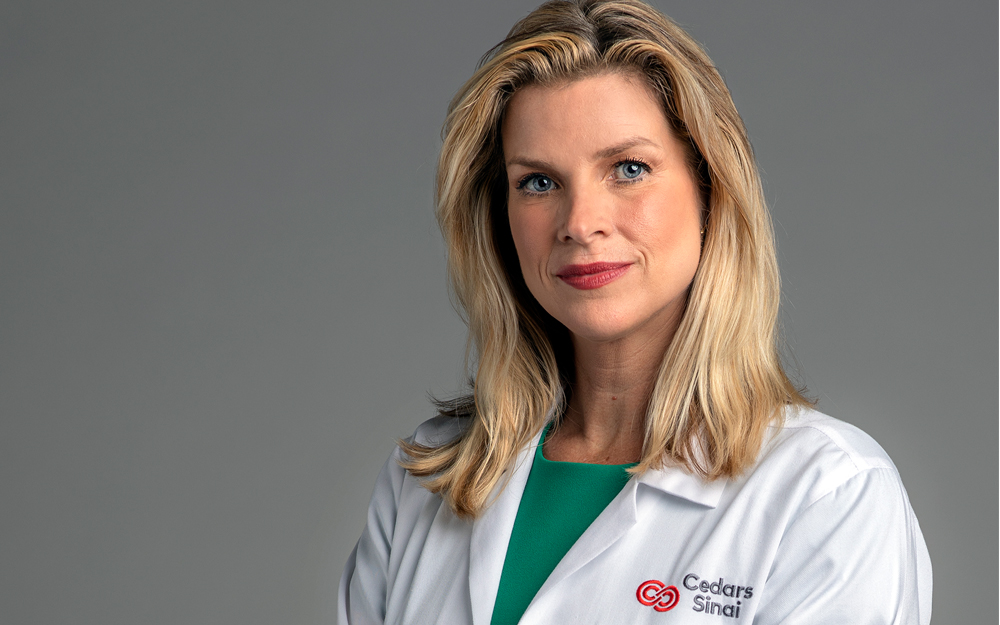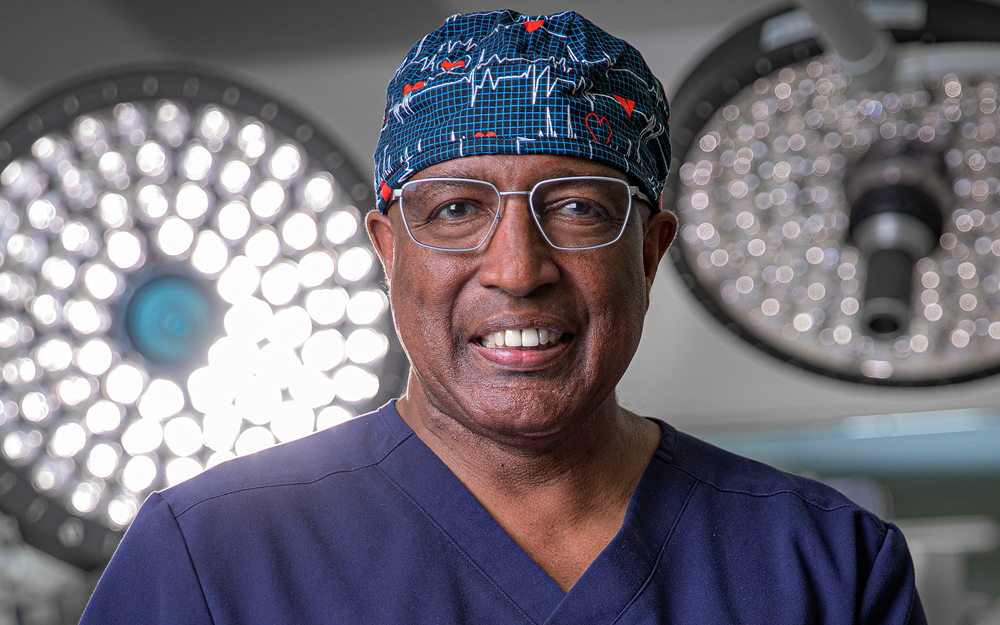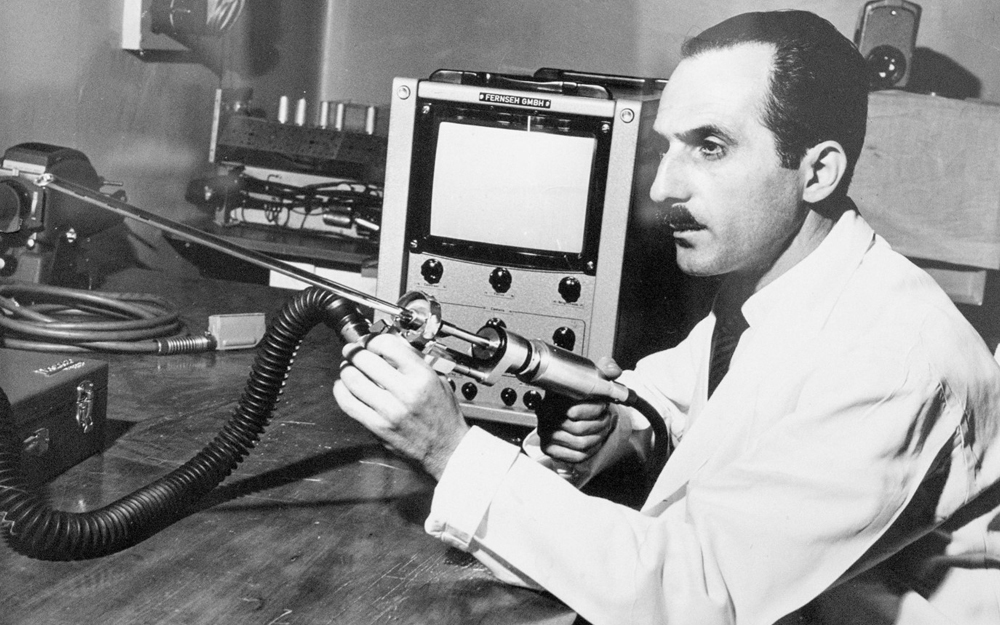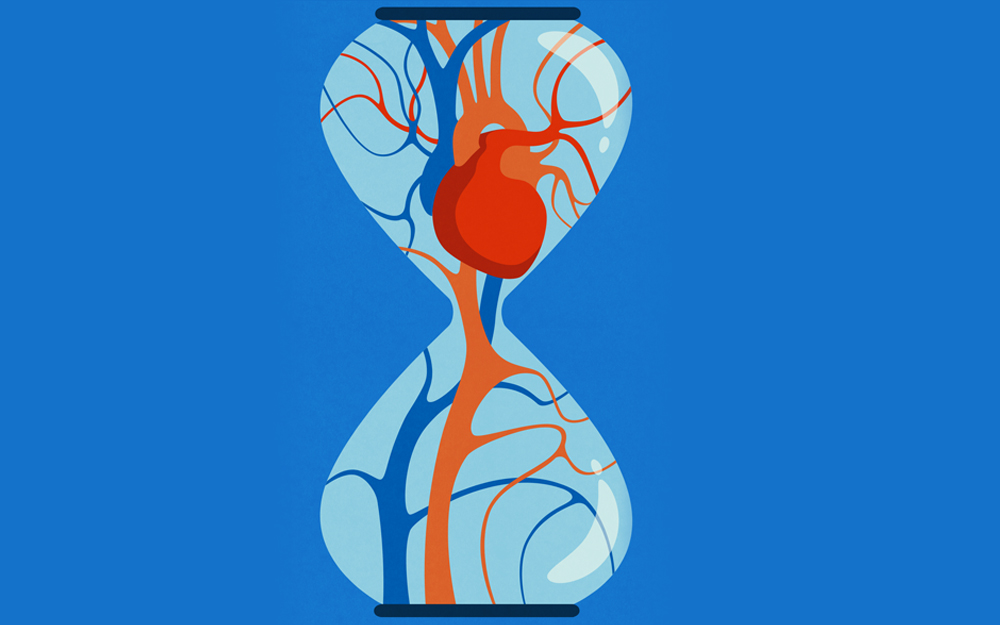Meet Nursing Leader and Advocate Margo Minissian, PhD, RN
Date
February 15, 2021
Credits

Date
February 15, 2021
Credits
Medical providers featured in this article
In Brief
{{cta-block}}
Margo Minissian, PhD, RN
Margo Minissian, PhD, RN,Executive Director, Geri and Richard Brawerman Nursing InstituteSimms/Mann Family Foundation Chair in Nurse Education, Innovation and Research
WORK HARD, PLAY HARD
Minissian recharges by escaping to the internet-free wilderness on weekend camping trips or trips to the ocean with her family. “I pull long hours and, to help myself maintain balance, I play hard, too. I’ve built structure around that—when I’m at work, I’m all in; and when I go home, I’m 100% toward my family.”
GOOD SPORTS
Both Minissian and her husband were NCAA collegiate athletes. She ran cross-country and track and field at Western Michigan University, and he played soccer. Their son, 18, and daughter, 13, love spending time outdoors and playing soccer.
SHOW-OFF
She, her daughter and niece share five Arabian horses they ride competitively. Another niece is also a nurse and avid equestrian. “My horses bring a whole other realm of fulfillment and enjoyment to my life,” Minissian says. “It’s become a family affair.”
Margo Minissian, PhD, RN, redefines the role of the nurse. Her recent appointment as executive director of the Geri and Richard Brawerman Nursing Institute marks a renewed focus on nursing research and innovation at Cedars-Sinai. An acute care nurse practitioner, she is the recipient of three National Institutes of Health grants to study cardiovascular risk and prevention. Here, Minissian shares her deep commitment to empowering patients to improve their health and nurses to advance their careers—and outlines her plans for cutting-edge research and education.
Why is nursing research so important?
Certain ideas and biases go along with the word “nurse.” Often, nursing is associated with more of the psychosocial or task-oriented nature of providing care at the bedside. Those aspects are crucial, and nurses do have intimate moments with patients at delicate times in their lives, but there’s so much breadth and depth to what nurses do. We are fostering critical-thinking skills by encouraging quality improvement projects at the bedside. That work can fill gaps in nursing education, which triggers translational research to ultimately improve the care that we deliver at the bedside and beyond.
When did you realize you wanted to work in healthcare?
When I was 10, my dad’s diabetes worsened into a series of heart attacks and strokes, and I spent a lot of time at the hospital with my mom. The nurses invited me to do my homework at their station. They would give me small jobs like delivering warm blankets and filling water pitchers. The competency and compassion of the nurses caring for my father meant everything. From then on, I knew I was going into healthcare. Unless you’ve walked in someone’s shoes, it’s hard to relate to what they’re going through, and I carry my experience with me every day. Each patient I see, I think about their living situations, their children, their parents, because I’ll never forget being on the receiving end of that compassion.
You specialize in cardiology and public health as well as the connection between adverse pregnancy outcomes and heart disease risk. What ties your work together?
The common theme is prevention. Nurses promote disease avoidance, and it starts with empowering individuals to take ownership of their own wellbeing and happiness. We’re studying heart disease risk in women with preterm delivery and preeclampsia by looking at blood vessel health and cardiac function. At the same time, we’re educating women about how to protect themselves. About a third of women at age 60 have heart disease. If we reach women earlier, we can empower them to initiate lifestyle changes, like exercise and quitting smoking. We can screen for and treat genetically high cholesterol, diabetes and gestational diabetes, and connect them with nutritionists.
"Ultimately, we want to catapult our best and brightest nurse leaders onto a world stage, train our future leaders and put them into places where they can make the greatest change, whether at the United Nations, in the White House or in Congress."
Margo Minissian, RN, PhD
What other research are you working on?
As part of the Coronavirus Risk Associations and Longitudinal Evaluation (CORALE), we are tracking inflammatory proteins in registered nurses who work in COVID-19 units. An elevation of these biomarkers indicates a person is more susceptible to becoming sick. We hope to develop a point-of-care test that we would use to screen nurses before their shift starts to assess those inflammatory indicators, which could guide us in deciding whether we should adjust their schedule to avoid them becoming ill. Ultimately, this research could help us create a safer and healthier work environment for all high-risk infectious disease areas.
How do you find balance in your work and your life?
Since I stepped into this role, my husband has retired as CEO of two companies to become a full-time dad to our teenagers. I married into a big, beautiful Greek Armenian family who live very close by, and that is a luxury that allows me to pursue this career. I would not have been able to go to graduate school two times over without my mother-in-law, Anitsa, who is now 97. I remember years ago, passing over my feverish baby to her and bawling while I headed out the door to a pathophysiology final at UCLA. She empowered me to continue my education, an education that was not available to her as a young woman.
In the Blog: Small Change, Big Impact For Pilot Program Led By ICU Nurses
What is your philosophy as a leader?
I believe in empowering from within. We are developing an advanced leadership fellowship to build on our existing staff development programs and help elevate our staff to more prominent careers. We’re fostering personal and professional mentorships that enable our nurses to stand on the shoulders of the giants we have here at Cedars-Sinai. Ultimately, we want to catapult our best and brightest nurse leaders onto a world stage, train our future leaders and put them into places where they can make the greatest change, whether at the United Nations, in the White House or in Congress.
What has been the most rewarding part of your new role?
Stepping into this role, I have been in awe watching nurses at work. Early in the pandemic, I was in a COVID-19 unit teaching nurses about the CORALE study when a patient went into respiratory distress. In the middle of my talk about how to monitor and protect themselves, these nurses rushed to the patient, whipping on their personal protective equipment before running into the room. I fell in love with nursing all over again, and I’m amazed at their dedication and professionalism.
In the Blog: Faces of Cedars-Sinai: Critical Care Nurse Olena Svetlov





